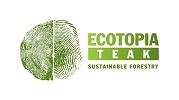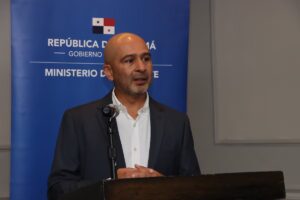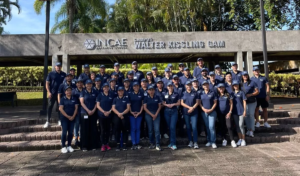
Panama seeks to ensure the legal origin of timber.
Tracking the transformation chain of timber logs from their departure from the forest until they reach an industry, workshop, or supply yard.
Miriam Lasso / miriam.lasso@epasa.com / @mlasso12

More than 110,000 hectares out of the over 200,000 in the Darién and Panama East regions are designated for forest utilization, indicating that 20% are under forest management, with 350 to 850 hectares utilized annually.
Well-managed forest utilization does not lead to deforestation, explained Álvaro Castillo from the Forestry Directorate of the Ministry of Environment. It’s an established economic activity regulated by forestry legislation, benefiting both communities and the environment, the expert noted.
The tracking of timber logs from their forest origin to industries, workshops, or supply yards has reduced illegal trafficking and use of timber through oversight and transparency measures.
This traceability process is supported by technological components including a web application for user registration and management of field data, transportation, and supply chain information. An Android application is used for census taking, tree identification, and oversight, along with NFC and QR codes to identify trees and logs.
The traceability system has enabled more transparent and less burdensome operations, empowering forest managers to uphold legal compliance effectively, Castillo emphasized.
The forest ranger, a certified forestry engineer by the National Technical Council of Agriculture, is responsible for 60% of forest inventory compliance and ensuring compliance throughout the forest utilization process, the expert indicated. Additionally, they are accountable to authorities and the community to ensure that forest utilization activities adhere to established legal norms.
110,000 hectares of forests in Panama East and Darien are allocated for forest utilization.
350 to 850 hectares are utilized annually according to the management plan.
Forest monitoring is focused in the Eastern region of the country, including the Emberá Wounaan, Wargandí, Guna de Madungandí, and Chepo regions, with potential expansions as authorities consider.
The system was initially developed with financial support from the International Tropical Timber Organization and the World Wildlife Fund (WWF), while communities invest in purchasing devices costing between $0.50 to $0.75, some of which are manufactured locally in Panama. Maintenance is covered by operating funds from the Ministry of Environment.
Castillo reiterated that the entire process is underpinned by Resolution No. DM-0068-2018, establishing the Environmental Traceability System and amending Resolution JD-0598 that regulates Law 1 (Forest Law) of 1994.
The positive impact of this system, comprising two modes—forests and submerged wood, and managed plantations and natural regeneration—has successfully reduced environmental crimes.
However, it’s acknowledged that illegal activity persists on a very small scale.
Illegal activity occurs at all levels of the industry; however, with the traceability system and agreements with security agencies, it has significantly decreased, providing reassurance to companies and communities.
Among the most common cases of illegal exploitation, incidents occur with balsam species in Darién and the Emberá Wounnan region, many of which are detected on highways.
Similarly, in Soberanía National Park and Camino de Cruces, there are cases of illegal exploitation of cocobolo, while in other provinces, illegal activities involve species such as cedar, oak, and corotú.
Typically, these crimes are committed by small groups of two to three individuals who do not transport more than one cubic meter, corresponding to about 12 to 15 pieces of wood from a tree, explained Castillo.
As of last May, the Public Ministry registered a total of 15 reports of logging or destruction of arboreal or shrub vegetation formations in special areas.

About us
Ecotopia Teak, S.A., we are a family-owned company dedicated to reforestation, harvesting, and exporting wood from commercial plantations. We work under high production standards and with social responsibility to obtain high-quality wood according to the needs and demands of national and international markets. Additionally, we actively contribute to the local economy by creating employment opportunities in the communities where we operate. Our commitment is to lead the industry in sustainable reforestation and wood production, preserving our natural resources and building a greener and more sustainable future.



